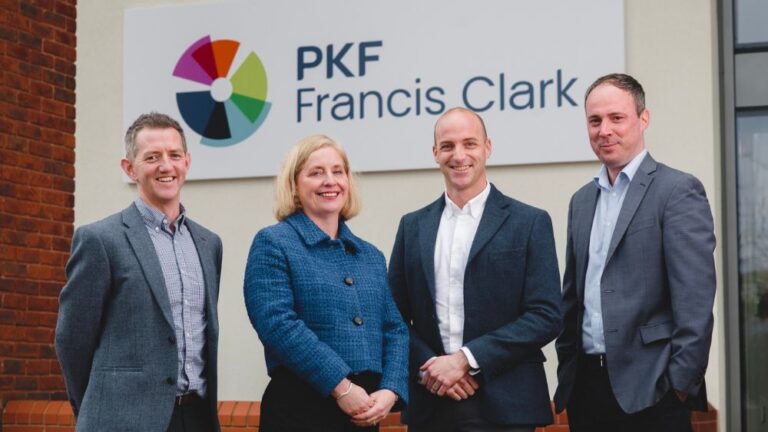
The Windsor Framework
We’ve had the fanfare of trumpets, what about the nuts and bolts?
The agreement was announced on the 27 February 2023 after the meeting of the UK Prime Minister, Rishi Sunak, and the President of the European Commission, Ursula von der Leyen, at the Fairmount Hotel at Windsor Great Park.
What does the framework do?
The agreement was reached in accordance with Articles 16 and 17 of the Northern Ireland Protocol and does not need parliamentary approval. However, the Prime Minister has promised that MPs shall have an opportunity to vote on it. Until it is passed through the House of Commons, it is only an agreement in principle.
The adoption of the agreement will halt the Northern Ireland Protocol Bill and the infringement proceedings by the European Commission brought against the UK in relation to the bill.
When do the changes come into effect?
Assuming the agreement is passed, there will still be much work required to facilitate the new planned systems and it is not expected that these will start to be implemented until Autumn 2023 and into 2024.
For the current position, the advice is to continue complying with current protocol rules and guidance. So, no change right away.
What are the key changes?
One of the key issues with the protocol was the requirement for full customs formalities, including declarations, for goods arriving from Great Britain (GB) entering Northern Ireland (NI).
The Windsor Agreement introduces the concept of a ‘green lane’, where goods intended for consumers in NI only, can be transported without the need for checks or declarations. This will mean that goods are staying in the UK. This green lane entry will introduce what is to be called the UK internal market scheme’ (UKIMS).
To utilise the UKIMS it will be necessary to be registered under the UK trader scheme which effectively provides the ‘trusted’ banner for entry into the green lane.
UK trader scheme – UKTS
This is the scheme which has been available for protocol effected businesses since Brexit and removes the imposition of customs duty if the goods imported are for use, or consumption, in NI only.
Those already entered into UKTS will automatically move over to the UKIMS. Traders not registered with UKTS will need to do so. HMRC has stated this will be a once and done registration to minimise ongoing administration.
Submissions via on-line portal
Once registered, traders will be required to submit standard commercial data through a simple on-line portal. This will include basic information from the commercial sales invoice and transport contracts. Commodity codes may only be required up to the first six digits, but this is to be confirmed.
This will replace the customs declaration process and checks at the ports. There is provision for the Border Force authorities to conduct intelligence-based checks to protect against smuggling and criminality into the EU, as would be expected.
Trader support service – TSS
The TSS will continue to play a vital role under the agreement and will continue to facilitate businesses to register for the UKTS and the completion of the on-line portal reduced data notifications.
> Businesses can sign up to the TSS service here
What if I can’t be certain of the end destination of the goods?
These goods will have to enter the ‘red lane’ and will be subject to the full customs formalities. The agreement recognises that this could create an overpayment of duty if goods are consumed or are destined for use in NI. For this reason, a compensatory measure has been introduced.
The new comprehensive tariff reimbursement scheme – NCTRS
This is a scheme which will supplement the UKTS where businesses who can evidence that they have paid duty on goods which have been used or consumed in NI can claim a refund of the duty. Details of the process and how it will operate are yet to be published.
It should be noted that goods which qualify as UK origin and carry the relevant origin statement should not be liable to duty in any case. This will not change.
UKTS – will there still be processing relief for small businesses?
This refers to goods sent to NI which are to be processed into final products that are not at risk of being destined for Ireland or elsewhere in the EU. The main beneficiaries are food for sale to end consumers in the UK, construction related goods becoming part of fixtures in NI, final use animal feed in NI and goods supplied direct to the recipient of health or care services by the NI importer.
One of the conditions for qualifying under the processing relief, is that the most recent year’s turnover is below £500,000. Under the agreement, this is increased to £2million.
What about changes to goods moving from NI to GB?
Under the protocol it was necessary for export declarations to be made for goods moving from NI to GB, however the UK Government managed to suspend this requirement as it stood in the way of the ‘unfettered access’ policy. Nevertheless, this was only a temporary suspension.
Under the Windsor agreement, the need for export declarations in respect of qualifying goods from NI to GB has been permanently removed.
Some controls remain for certain controlled goods (e.g. endangered species) and goods under customs procedures will still be subject to documentation (e.g. goods under transit or carnets or movements between customs warehouses)
Food retail – green lane
Currently, agri-food goods are subject to full EU controls and every lorry is stopped for document checks. Up to 30% are held for physical checks due to the carriage of products of animal origin (POAO).
Vet certificates are required for individual products which cost circa £150.00 each. A lorry carrying 50 different products will need 50 separate vet’s certificates (£7,500) to be absorbed in the pricing of the products.
There has been a complete ban on GB chilled meat preparations (e.g. sausages).
Goods had to meet EU standards on health, marketing, organics and wine.
The scheme for temporary agri-food movements to NI (STAMNI) provided some reliefs for businesses, but this was only temporary.
The agreement proposes the Northern Ireland retail movement scheme which will come into force in the Autumn of 2023. Under this scheme, the green lane will open up for goods destined for:
- Supermarkets
- Wholesalers
- Hospitality
- Catering companies
- Public services e.g. schools and hospitals
The need for vet’s certificates for individual products will be removed.
Document checks will be reduced from 100% to 5%, phased over a period up to 2025.
The requirement for 100% checks will be replaced with risk assessed, intelligence led checks.
The ban on GB chilled meat products is removed.
The EU laws will be replaced by UK public food health, marketing and organics standards for retail goods remaining in the UK.
There will be access for organic agri-foods from the rest of the world into NI as part of the simplified scheme.
Will plants, seeds and used agricultural machinery still be subject to third country controls?
The agreement proposes the following:
- Lifting the ban on seed potatoes, meaning high quality British seed stock can move to NI once again
- Lifting the ban on ‘high risk’ trees and shrubs from GB
- Routine checks on all products removed
- Certification on movements of GB plants to NI removed
- Phytosanitary certificate checks and controls on agricultural and forestry machinery removed
There will be a new simplified process with no certification requirements.
It will be replaced by a simple NI plant health label attached by the supplying business (professional operator). The plant label will be virtually the same as the plant passport currently required within GB, with the only additions being the words ‘for use in UK only’ and a QR code to scheme rules.
To move agricultural machinery into NI, it will only be necessary to ensure it is clean and has a NI plant health label attached.
Implementation is expected to be Autumn 2023. Savings from £153 per individual consignment to £123 per year for a UK plant passport scheme.
What about sending post or parcels to NI?
Under the protocol, the intention is for all post and parcels to be subject to full EU controls. The UK Government imposed a temporary relief which meant that the process could continue as it did before Brexit, with the proviso that business to business transactions with a consignment value of more than £135 should be subject to declarations. Imported goods with a value of not more than £135 are not subject to customs duty.
Under the agreement, the EU full customs processes are scrapped. The intention is as follows:
- Private mail is no different to sending to someone in GB – no controls
- NI consumers ordering from GB businesses can continue to order and receive goods through the post, just as the rest of the UK, with no customs declarations required
- For GB business to NI consumer supplies, the parcel operator will be required to send standard commercial data to HMRC on a regular agreed basis. This is because they will work closely with HMRC to ensure any risks to the EU single market are dealt with through sharing of intelligence and targeting of risk
- Business to business supplies will be facilitated via the green lane concept, where the goods are remaining in the UK, just as for goods moving between GB and NI by freight (UKIMS).
Implementation is proposed for September 2024 and the exiting relief will continue to apply until September 2024.
Will goods in NI still fall under EU rules for VAT and excise?
The agreement secures full and lasting powers for the UK to set VAT and excise rules on alcohol and other goods in NI removing existing rules and preventing other new EU VAT rules from applying in NI.
Here are just a few examples of the benefits:
- When the UK Government cut the VAT rate on the domestic insulation of energy saving materials, it was incompatible with EU rules and could not apply to homeowners in NI. This would no longer be the case
- The reduction in duty on draught alcoholic drinks may be enjoyed by consumers in NI as well as GB, which would not be possible if NI was still under EU rules
- The planned changes under the SME VAT directive will now not apply to businesses in NI. (Reduction in threshold to £10,000, reduction in zero rates, change of VAT accounting rules)
At present, there is no implementation date referenced.
Human medicines – still subject to the European Medicines Agency?
Under the protocol, novel medicines including innovative cancer drugs, must be approved by the European Medicines Agency (EMA) not the UK’s Medicines and Healthcare Regulatory Agency (MHRA). Medicines also have to meet the needs of many EU labelling requirements.
Under the agreement:
- The MHRA will be able to approve all medicines on the market in NI. Businesses will only need to secure approval for a UK wide licence from the MHRA to supply medicines to NI, not the EMA
- It removes any Falsified Medicines Directive 2024 requirements on packaging, labelling and barcodes for medicines
- Northern Ireland based pharmaceutical and medical technology firms can continue to enjoy frictionless access to the EU single market, as long as they meet EU licensing rules
- Businesses will be able to produce a single medicines pack for the whole of the UK
- Medicines sent from GB destined for NI should use the green lane
There is no indication of implementation date at present.
Will the EU rules still apply if I take my pet to NI?
The agreement relieves many of the EU requirements in relation to dogs, cats and ferrets, provided they have been micro-chipped.
Under the agreement, there is no longer any requirement for an animal health certificate from a vet, no requirement for a rabies vaccine, and no requirement for tapeworm treatment in relation to pet dogs.
The planned procedure is as follows:
- Microchipped pets can travel with a life long ‘pet travel document’, issued free of charge by DEFRA and available in hard copy and on a smartphone app
- Owners will complete a simple tick box as part of their travel booking, acknowledging they accept the scheme rules and that they will not move their pet into the EU
- There will be no routine additional checks by the NI authorities. Any checks carried out will be risk based and intelligence led, e.g. puppy smuggling
It is envisaged that the changes will be implemented in the Autumn 2023.
What has been agreed on state aid?
The EC Commission and the UK Government have agreed a joint declaration setting out a joint understanding of the circumstances in which subsidies granted by UK authorities can affect trade between Northern Ireland and the EU, and which are therefore subject to Article 10(1) of the protocol.
The joint declaration neither modifies the substance of Article 10(1) nor restricts its application. It merely clarifies a common understanding of the circumstances in which such an effect on trade exists, to provide more clarity to stakeholders.
In summary, it was agreed that EU state aid rules referred to in Article 10(1) are only applicable to subsidies that have a genuine and direct link to NI. For this genuine and direct link to exist, the subsidy in question needs to have a realistic foreseeable effect on trade between NI and the EU. The effect should be material, rather than hypothetical or presumed. The mere placement of goods on the NI market is therefore not sufficient, on its own, to create a genuine and direct link.
Can NI companies avoid the 25% duty safeguarding measure on steel?
The EC Commission and the UK Government have agreed a solution for the movement of the most sensitive categories of steel from GB to NI that are subject to tariff rate quotas (TRQs).
NI companies will be able to use the EU’s TRQs, providing them access to UK-origin steel in these categories. This will allow them to avoid having to pay the 25% tariff linked to the EU.
The EU and UK have agreed to continue working together on finding a solution for the use of TRQs by NI businesses for other relevant commodities.
What about the politics?
The Court of Justice of the European Union remains the sole and ultimate arbiter of EU law. The EU and the UK have committed to discuss any issues of the protocol within the joint structures of the withdrawal agreement. They will attempt to arrive at mutually satisfactory resolutions of matters that may arise in the implementation of the protocol.
What is the Stormont brake?
The Stormont brake is a new emergency mechanism that will allow the UK government, at the request of 30 members of the legislative assembly in Northern Ireland (Stormont), in the most exceptional circumstances, as a last resort as set out in a unilateral UK declaration, to stop the application of amended or replacing provisions of EU law, that may have a significant and lasting impact specific to the everyday lives of communities in Northern Ireland.
The precise conditions under which the members of the legislative assembly can trigger the process are outlined in the UK unilateral declaration on involvement of institutions of the 1998 Good Friday (Belfast) agreement and in the new Article 13(3a) of the protocol.
In short, the Stormont brake can be triggered only after having used every other available mechanism, and where the amended or replacing EU act, or a part of it, significantly differs in scope or content from the previous one and application of such amended or replacing act would have a significant impact specific to everyday life of communities in Northern Ireland in a way that is liable to persist.
The brake can be used for amendments to or replacements of a subset of acts listed in the protocol, not to all acts.
If triggered and if the conditions are met, the amended EU act would not apply automatically in Northern Ireland.
What happens if no agreement in joint committee after the brake is triggered?
After the UK has notified the EU that the brake has been triggered, an exchange of views will take place in the joint committee on the implications of the amended or replacing act for the proper functioning of the protocol. If the parties cannot agree either to add an amended or replacing act or to other measures to ensure the proper functioning of the protocol, the EU can take appropriate remedial measures, as is the case under Article 13(4) of the protocol.
For a notification under Article 13(3a) to be made in good faith, it needs to be made under each of the conditions set out in the unilateral declaration made by the United Kingdom. An arbitration panel may rule on whether these conditions have been met.
Next Steps
A meeting of the withdrawal agreement joint committee will take place in the coming weeks to adopt the necessary measures, translating the relevant joint solutions into legally binding commitments by making full use of its powers under the withdrawal agreement.
The EC Commission and the UK Government will then proceed with the necessary steps to implement these joint solutions expeditiously and in good faith.
The new arrangements are incompatible with the Northern Ireland Protocol Bill. The UK Government has agreed not to proceed with the Bill so that it will fall in the UK Parliament.
The UK Prime Minister has stated that the Windsor Framework agreement will be put to the vote and passed in Commons.
These arrangements, when implemented, mean that there will no longer be grounds for the existing EC Commission legal proceedings against the United Kingdom relating to the protocol on Ireland / Northern Ireland.
Written by












